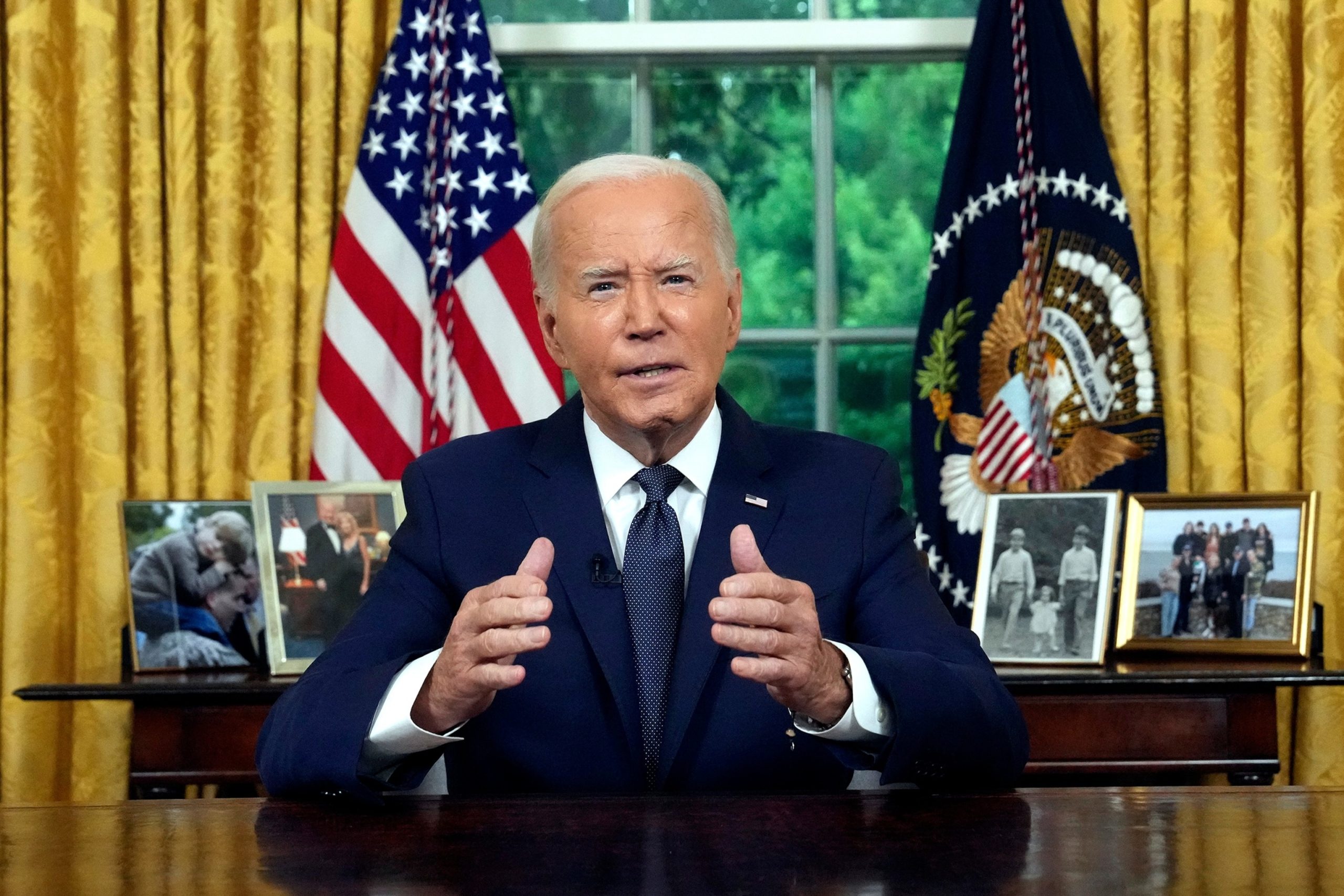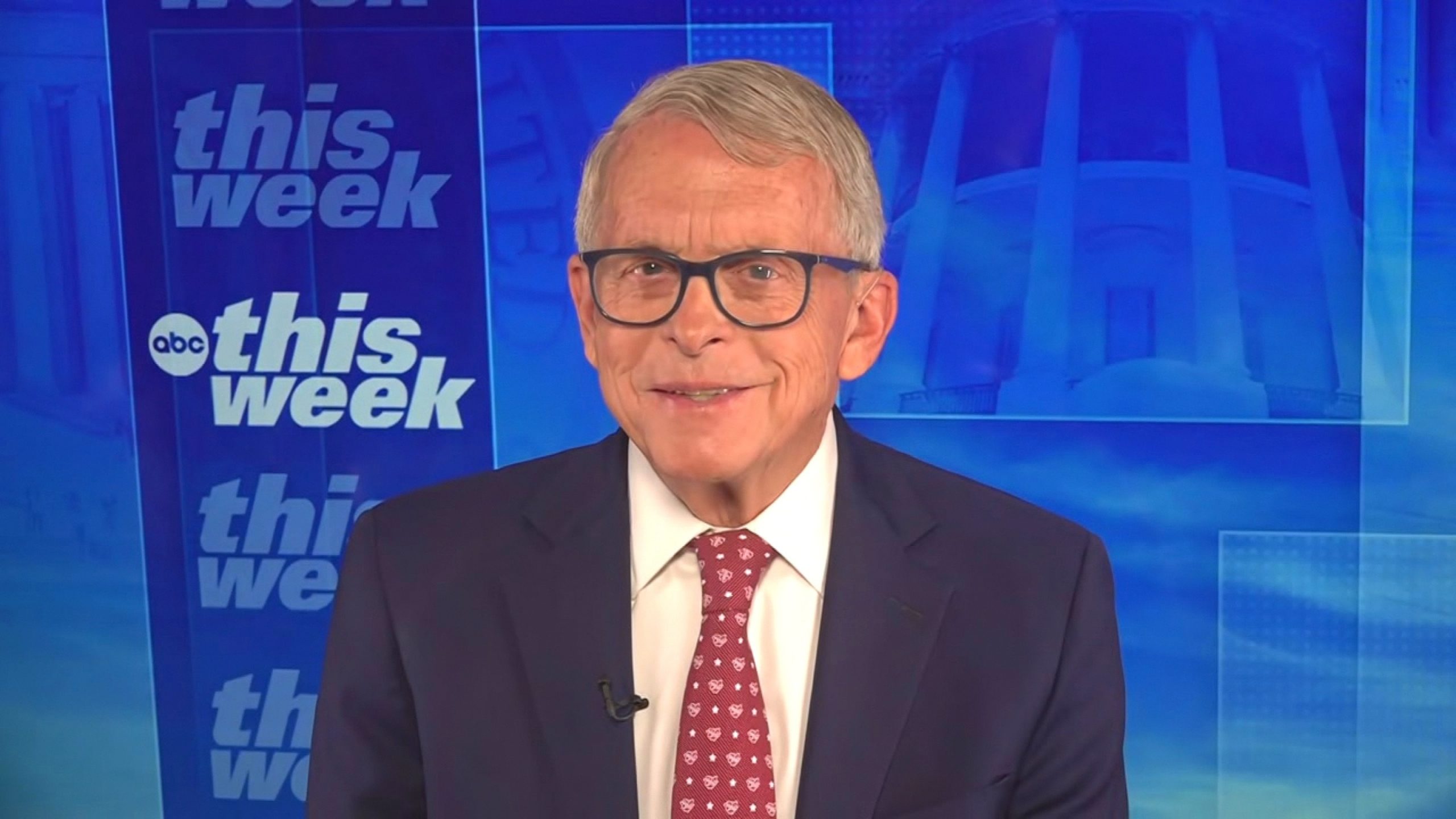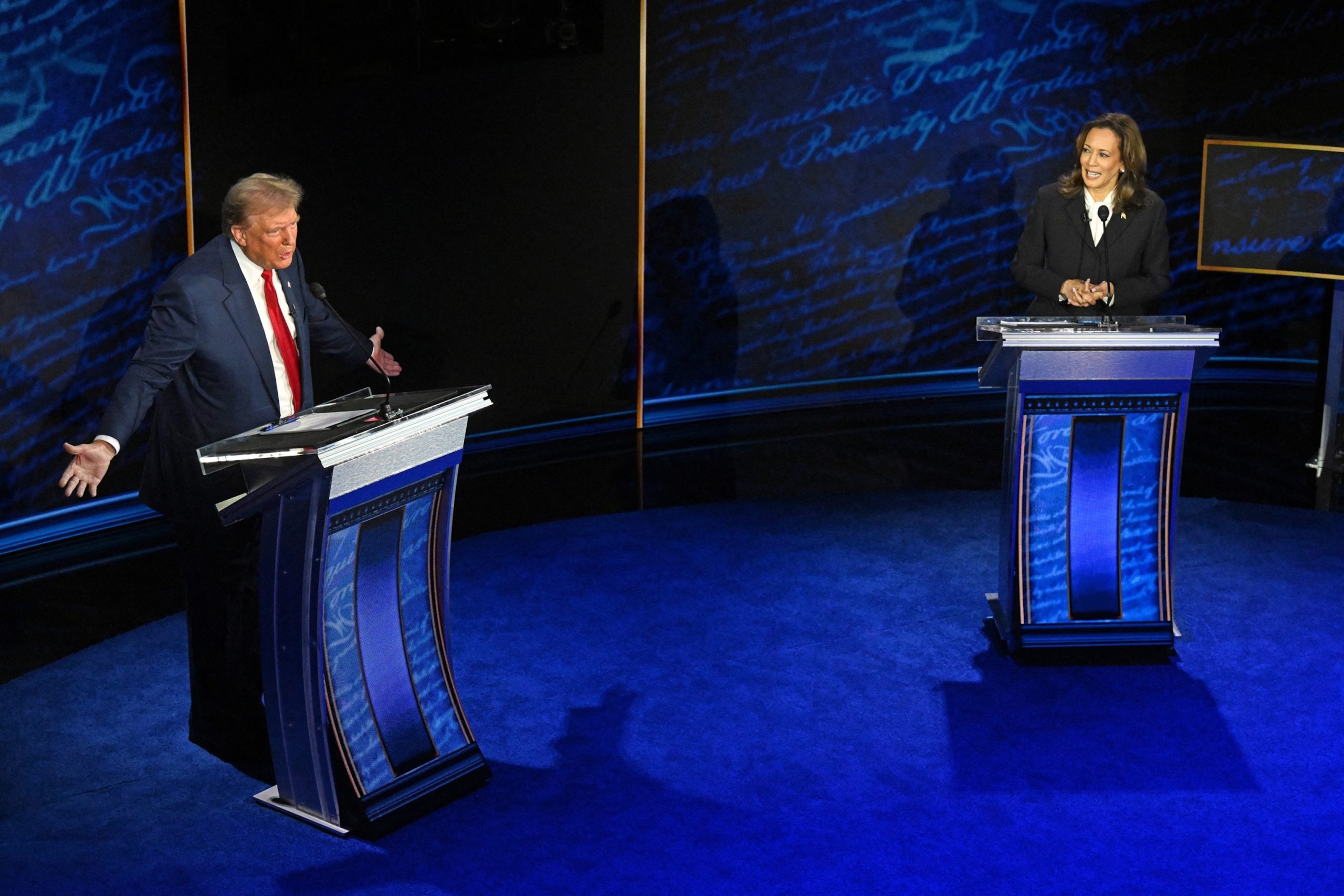President Joe Biden, in a rare Oval Office address to the nation, will speak extensively for the first time on his decision to withdraw from the 2024 race and his plans for what will now be the final few months of his long political career.
Biden will deliver remarks at 8 p.m. ET on Wednesday, three days after his bombshell announcement in a letter addressed to “my fellow Americans” that he was stepping away from the campaign trail.
He is also set to discuss how he will “finish the job” — the phrase that became his reelection motto as he campaigned for a second term against his 2020 rival Donald Trump.
That election battle came to an end on Sunday as Biden acquiesced to a month of intense pressure from Democrats to change course after his poor debate performance reignited questions about his age and whether he could successfully take on Trump to win another four years in office.
“It has been the greatest honor of my life to serve as your President,” Biden wrote in the letter posted to social media as he recovered from COVID-19 at his residence in Rehoboth, Delaware.
“And while it has been my intention to seek reelection, I believe it is in the best interest of my party and the country for me to stand down and to focus solely on fulfilling my duties as President for the remainder of my term,” he wrote. “I will speak to the Nation later this week in more detail about my decision.”
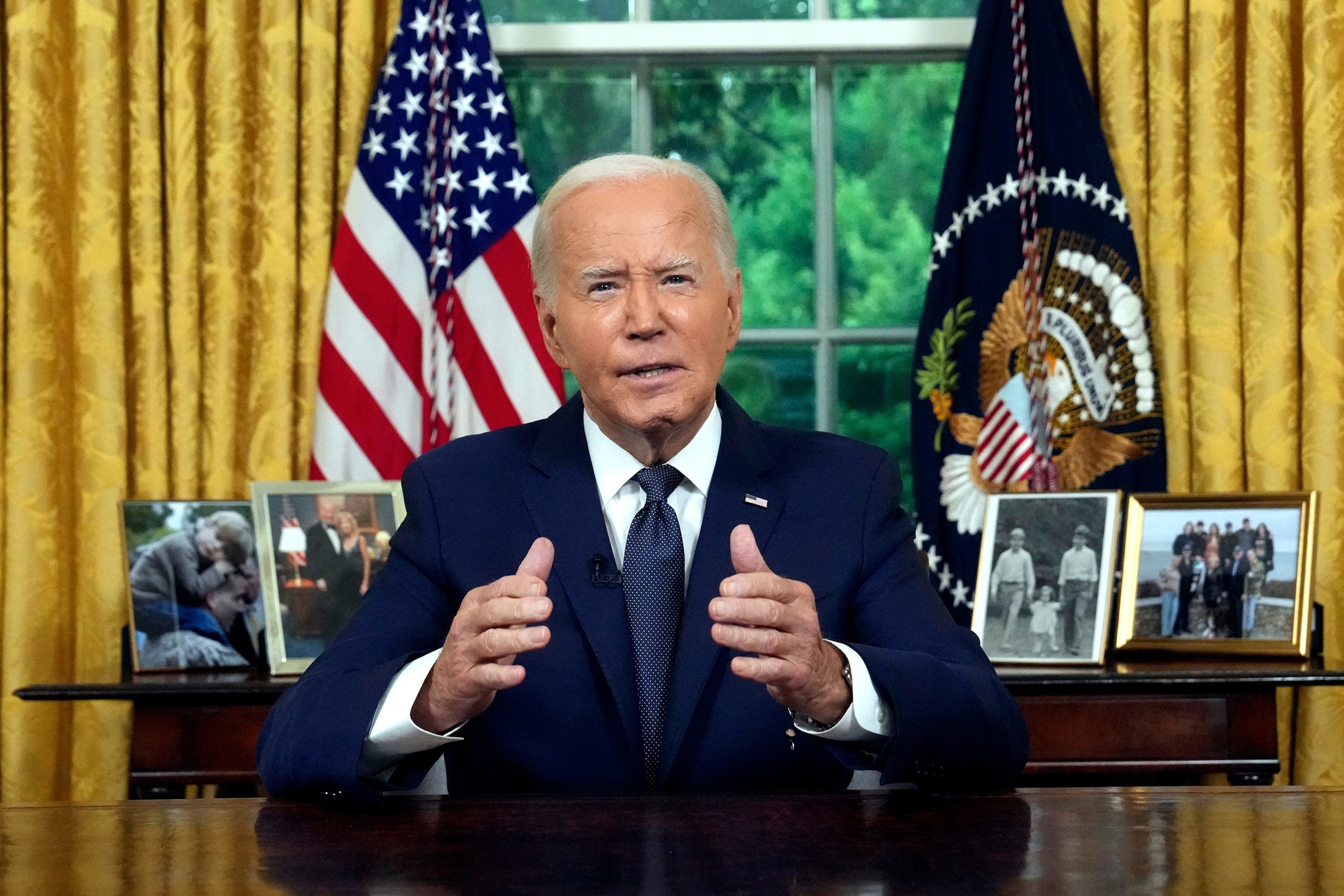
President Joe Biden addresses the nation from the Oval Office of the White House in Washington, D.C., on July 14, 2024.
Erin Schaff/AP
Biden quickly passed the torch to Vice President Kamala Harris, who began campaigning in earnest to become the Democratic nominee. Her first stop was to the Biden-Harris team’s headquarters in Wilmington, Delaware, on Monday.
The president called in to the event to address his staff and reiterate his support for Harris.
“I know yesterday’s news was surprising and hard for you to hear,” Biden said. “But it was the right thing to do.”
He also told them their mission hasn’t changed and that he will be by Harris’ side from now until November.
“And by the way, I’m not going anywhere. I’m going to be out there on the campaign with her, with Kamala. I’m going to be working like hell, both as a sitting president getting legislation passed as well as in campaigning,” he said.
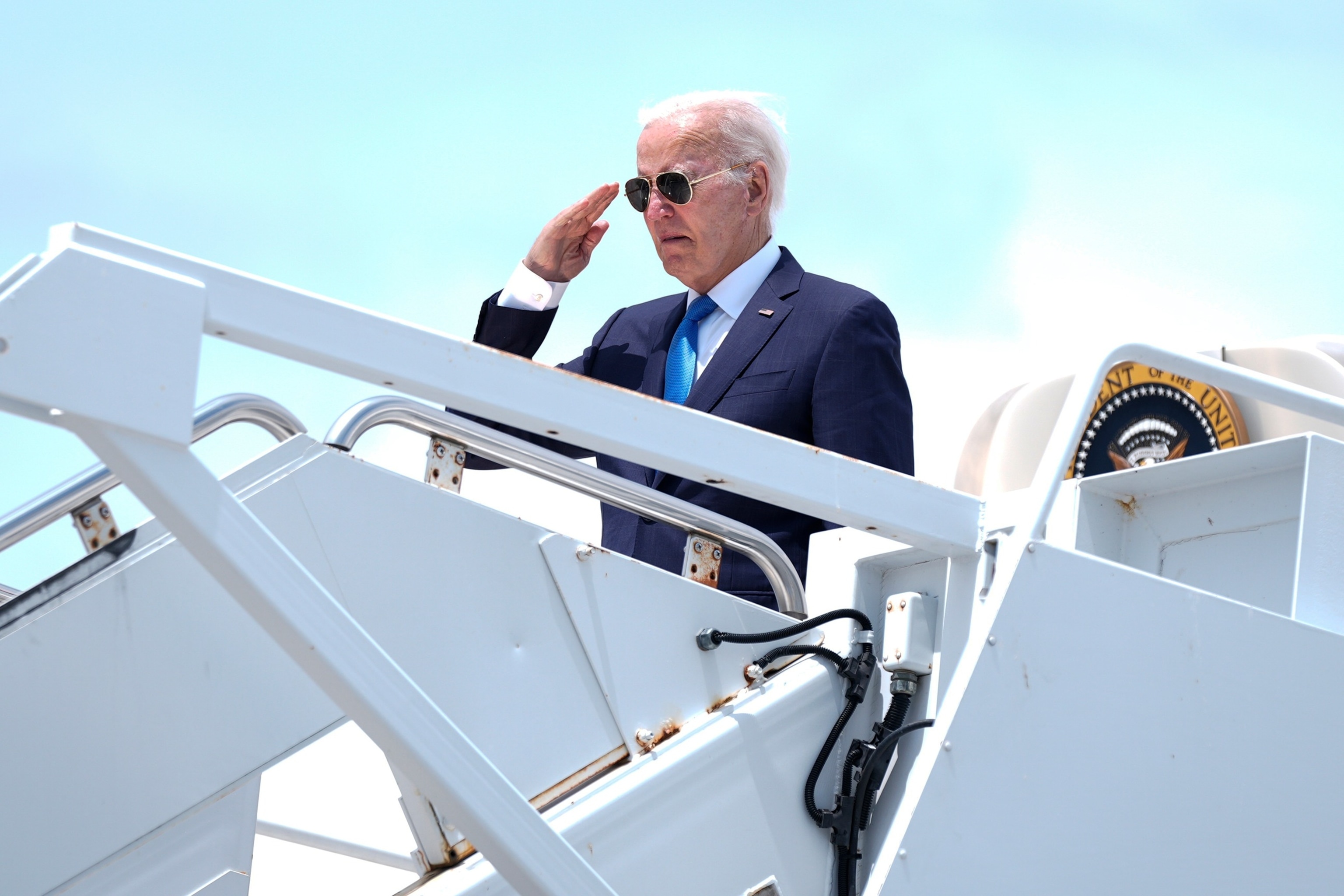
President Joe Biden boards Air Force One at Dover Air Force Base, in Dover, Del., on July 23, 2024.
Manuel Balce Ceneta/AP
Still, Wednesday’s formal speech on his 2024 exit is bound to be an emotional moment for Biden, as it marks the beginning of the end of his decades-long career in public service.
Biden began as one of the youngest senators in United States history and spent 36 years representing Delaware on Capitol Hill. In 2008, he was tapped as President Barack Obama’s running mate and spent eight years as his vice president.
In 2020, Biden reached the long-sought pinnacle of his career as he clinched the Democratic nomination for president after failed attempts in 1988 and 2008, and went on to defeat Trump in the general election.
Biden launched his reelection bid in April 2023, saying now was not the time to be “complacent,” as Trump had already said he was going to be running again on the Republican ticket.
While questions about his age (at 81 he is the oldest sitting president and would be 86 at the end of a second term) plagued his campaign from the start, they reached a fever pitch following the CNN debate in late June. Biden chalked up the performance as a “bad night” but faced growing calls from those within his own party to step aside.
Biden’s withdrawal marks the first time in 50 years that an incumbent president has chosen not to run again.
In March 1968, as Americans grappled with divides over the Vietnam War, Lyndon B. Johnson shocked the nation when he announced on television that he “shall not seek, and I will not accept, the nomination of my party for another term as your president.”
“But let men everywhere know, however, that a strong, a confident, and a vigilant America stands ready tonight to seek an honorable peace — and stands ready tonight to defend an honored cause — whatever the price, whatever the burden, whatever the sacrifice that duty may require,” Johnson said from the Oval Office, the same setting for Biden’s big moment on Wednesday.
President Joe Biden made a historic announcement in a prime-time address to the nation on Thursday, revealing his decision not to seek re-election in the 2024 presidential race. This decision came as a surprise to many, as speculation had been mounting about whether the 79-year-old president would run for a second term.
In his address, Biden explained that he had made the decision after much reflection and consultation with his family and advisors. He cited his age and the need for a new generation of leadership as key factors in his decision. Biden also acknowledged the challenges facing the country, including the ongoing COVID-19 pandemic, economic uncertainty, and political polarization, and expressed his confidence in the ability of his administration to address these issues in the remaining years of his term.
Despite his decision not to run for re-election, Biden made it clear that he would continue to serve as president with dedication and commitment. He outlined his plans for the remainder of his term, which include focusing on passing key legislative priorities such as infrastructure and voting rights reform, as well as addressing pressing issues such as climate change and racial justice.
Biden also hinted at potential future plans beyond his presidency, stating that he would remain active in public service and continue to advocate for the values and principles that have guided his career. While he did not provide specific details about his post-presidential plans, Biden’s remarks suggested that he would remain engaged in political and social issues even after leaving office.
The announcement of Biden’s decision not to seek re-election has sparked speculation about who will emerge as the Democratic frontrunner for the 2024 presidential race. Potential candidates include Vice President Kamala Harris, former presidential candidate Bernie Sanders, and rising stars such as Pete Buttigieg and Stacey Abrams. The Republican field is also expected to be competitive, with potential candidates including former President Donald Trump, Florida Governor Ron DeSantis, and Senator Ted Cruz.
Overall, Biden’s prime-time address marked a significant moment in American politics, as the president made a bold decision about his political future and outlined his plans for the remainder of his term. As the country looks ahead to the 2024 presidential race, the stage is set for a new generation of leaders to emerge and shape the future of American politics.
